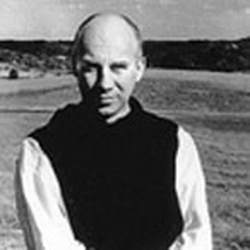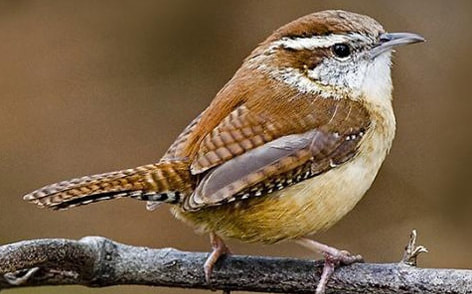Quotables: The Spiritual WildernessIn this wilderness I have learned how to sleep again. I am not alien. The trees I know, tonight I know, the rain I know. I close my eyes and instantly sink into a whole rainy world of which I am a part, and the world goes on with me in it, for I am not alien to it. * * * How necessary it is for monks to work in the fields, in the rain, in the sun, in the mud, in the clay, in the wind: these are our spiritual directors and our novice-masters. They form our contemplation. They instill us with virtue. They make us as stable as the land we live it. * * * Another approach. Yesterday I was sitting in the woodshed reading and a little Carolina wren suddenly hopped on to my shoulder and then on to the corner of the book I was reading and paused a second to take a look at me before flying away. (Same wren just came back and is singing and investigating busily in the blocks of the wall over there.) Here is what I think. Man can know all about God's creation by examining its phenomena, by dissecting and experimenting and this is all good. But it is misleading, because with this kind of knowledge you do not really know the beings you know. You only know about them. That is to say you create for yourself a knowledge based on your observations. What you observe is really as much the product of your knowledge as its cause. You take the thing not as it is, but as you want to investigate it. Your investigation is valid, but artificial. There is something you cannot knew about a wren by cutting it up in a laboratory and which you can only know if it remains fully and completely a wren, itself, and hops on your shoulder if it feels like it. A tame animal is already invested with a certain falsity by its tameness. By becoming what we want it to be, it takes a disguise which we have decided to impose upon it. Even a wild animal, merely "observed," is not seen as it really is, but rather in the light of our investigation (color changed by fluorescent lighting). But people who watch birds and animals are already wise in their way. I want not only to observe but to know living things, and this implies a dimension of primordial familiarity which is simple and primitive and religious and poor. This is the reality I need, the vestige of God in His creatures. And the light of God in my own soul. When the Trees Say Nothing by Thomas Merton, edited by Kathleen Deignan (Sorin Books, 2003), pp. 43-45.  Thomas Merton (1915 to 1968) is widely acclaimed as one of the most influential spiritual masters of the 20th century. A monk, poet, spiritual writer, and social activist, he is perhaps best known for his spiritual autobiography, The Seven Storey Mountain.
1 Comment
|
Welcome to the TorahTrek eJournal! Here you will find videos, interviews, articles, photos, and educational materials on the interconnections between Judaism, wilderness, spiritual practice and sustainability. Our goal is to support the spiritual/ethical lives of individuals, enliven and strengthen the Jewish community, and promote a sustainable society living in balance with the earth. Explore the eJournal by clicking on the topics below. Please share these resources with your friends! Topics
All
|


 RSS Feed
RSS Feed